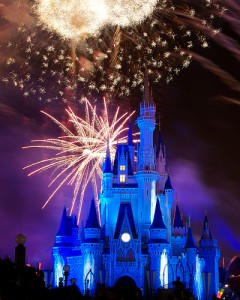 In re-reading C.S.Lewis’ wonderful sermon The Weight of Glory he begins with comments on the nature of desire.
In re-reading C.S.Lewis’ wonderful sermon The Weight of Glory he begins with comments on the nature of desire.
Christianity is known by those outside for it prohibitions. It seems to be a religion of “Thou shalt not.”
Lewis reminds us that desire is good because it is a desire for the good. Even when the desire is distorted into something horrible and fearsome, still beneath it all is a desire for a good.
The prohibitions for which Christians are famous are not established to destroy desire, but to direct it.
The commandments not to do certain things are the way we are directed to do better things.
Do not commit adultery so that you may sustain and build a wonderful marriage.
Do not steal so that you may enjoy the rewards of hard work and enterprise and the individual freedom of taking responsibility for yourself.
Do not kill so that you will not be killed, so that you will be alive and thrive with all that makes for an abundant life.
The problem with our society and with ourselves is that we have a lost any sense of the higher goods for which the lower goods must be sacrificed.
I cannot have a good and happy marriage and be a promiscuous philanderer. That lesser pleasure must be sacrificed for the greater.
I cannot have the vigor and energy of being physically fit and the lower pleasure of laying around eating bowls of ice cream.
The American creed, however encourages us to imagine that we can have it all. Disneyland, is the first fantasy land that is real, and if it is real in Florida and California, then I must be able to have every pleasure now at a low price and with no consequences.
All the forces of technology and learning are gathered to deliver this dream of unlimited pleasure and the fulfillment of every desire.
Furthermore, every system of morality must be abolished. There must be no prohibitions.
Prohibitions are prohibited.
This dictatorship of desire–this demand for Disneyland–leads finally to the destruction of all desire for if all desires are of equal value and there is no sacrifice to be made or not great price to be paid for these desires to be fulfilled, then there is ultimately no pleasure beyond wallowing in self indulgence.
What we desperately need in our society is not a denial of pleasure, but a renewal of desire for the highest goods and the greatest pleasure.
As C.S.Lewis writes,
If there lurks in most modern minds the notion that to desire our own good and earnestly to hope for the enjoyment of it is a bad thing, I submit that this notion has crept in from Kant and the Stoics and is no part of the Christian faith. Indeed, if we consider the unblushing promises of reward and the staggering nature of the rewards promised in the Gospels, it would seem that Our Lord finds our desires, not too strong, but too weak. We are half-hearted creatures, fooling about with drink and sex and ambition when infinite joy is offered us, like an ignorant child who wants to go on making mud pies in a slum because he cannot imagine what is meant by the offer of a holiday at the sea. We are far too easily pleased.
Indeed.
We are far too easily pleased. Our desire is sated. Our vision is stunted. Our dreams are empty and our hopes void.
Now think how this applies to our Catholic religion where even there we have turned what should be a land of desire into a self satisfied routine to give ourselves a little spiritual comfort pill each week. How many Catholic churches have turned the liturgy into a feel good mixture of smug spirituality and a message bout nothing more than earth bound happiness?
Have you noticed how little we hear about the hope of heaven or the fear of hell? Instead of nurturing desire for our heavenly homeland we are given anodyne homilies about making this world a better place. “All are welcome. All are welcome in this place.” What, shall this mean auditorium be the end goal of my heart’s desire? Shall these trite ditties about making a difference replace the choirs of angels? Shall this fellowship meal be all that is on offer?
This is why the Divine Liturgy is supposed to be transcendent in its beauty, mysterious in its language, and glorious in its reverence. It is supposed to be the pointer to heaven, the reminder of our destiny a glimpse of glory. It is supposed to spark in our hearts the longing for a beauty and acceptance far deeper and more amazing than we can imagine.
It is to be an echo of eternity and the heart’s homing.
The liturgy, if you like, is to be the source and summit of our desires–the place where our lower desires are disciplines and our higher desires refined. The liturgy and the spiritual life are the means by which our desires are ordered and structured until at last we take our place our desires ordered and our destiny of peace restored.












